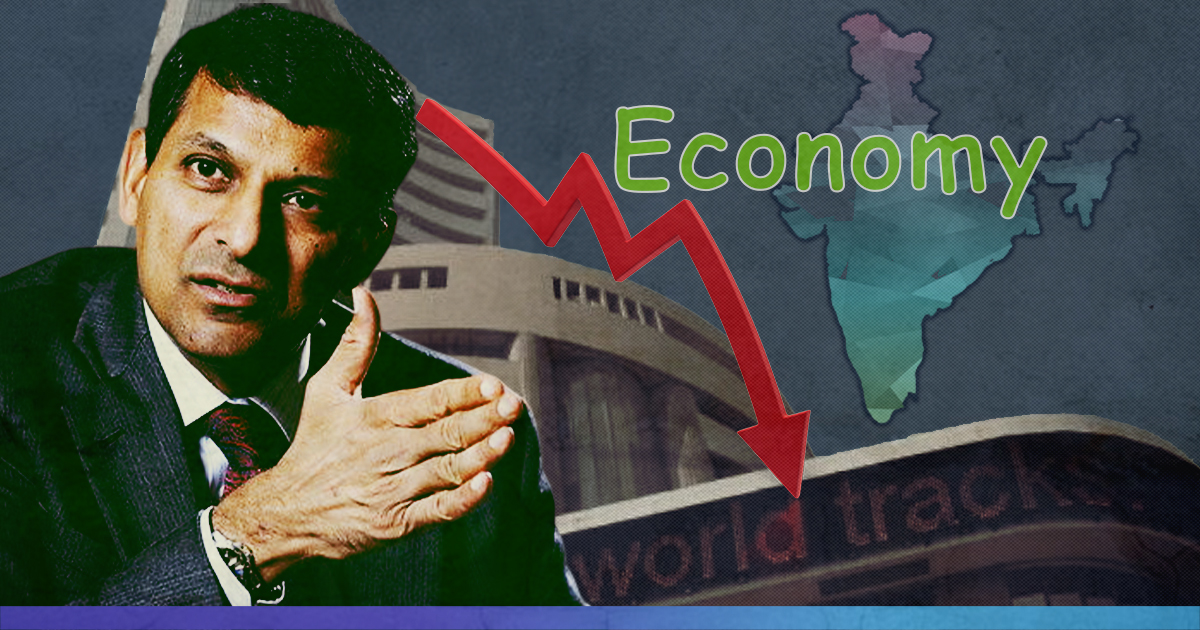Attacking the Narendra Modi government, Former RBI governor Raghuram Rajan said that its majoritarianism and authoritarianism were taking the country down a “dark and uncertain path”. Further, he accused it of weakening institutions.
According to Rajan, the tipping point for the current slowdown were “factors such as ill-conceived demonetisation and poorly executed GST”.
“Even while growth is slowing, the government is pushing its welfare programme, which gives it a lot of political capital among people. There is tremendous pressure on the government for a stimulus. But you cannot keep spending, something has got to give,” Rajan said in his OP Jindal Lecture at Brown University in the US on October 9.
He said that the stress in sectors such as finance and real estate was a symptom of the slowdown and not the cause.
“Ministers Are Disempowered”
“Modi did not do better in the economy during the first term because the government is extremely centralised which puts a lot of pressure on the leadership, which does not have a consistent, articulated vision on how to achieve growth,” said Rajan.
“Ministers are disempowered. The bureaucrats are unwilling to take decisions on their own and do not have a strong idea of serious reform,” said Rajan. “The bureaucracy’s effectiveness has been diminished because in parallel India is running a campaign against corruption in the past. For a bureaucrat there is no significant upside to taking action if he can be subject to vigilant (sic) inquiry by the next administration,” he added.
“Even senior officials have been held in custody without upfront evidence. I do worry that the former finance minister has been held in jail without trial for over a month,” said Rajan.
He further said: “Because of the weakness of institutions every government runs the risk of turning authoritarian. This was true about Indira Gandhi after 1971 as it is true of the Modi government in 2019,” said Rajan. He said the key test of authoritarianism was whether institutions are being weakened or strengthened and the experience in India was not encouraging.
“Even the high judiciary, which was so active in the past, has been strangely silent on the constitutional issue whether changes in Kashmir are warranted and whether the continuing restrictions on a sizable number of citizens there is okay constitutionally.” While majoritarianism may win elections, it is taking the nation down a “dark and uncertain path”, he claimed. “India is better off strengthening its democracy and decentralising,” he said.
“Even today you see WhatsApp messages saying that 5% growth is wonderful without recognising that its come down,” said Rajan.
Country’s Economic Situation ‘Worrisome’
Rajan has warned that the economic situation of India is ‘worrisome’. He said that the country’s fiscal deficit ‘conceals’ a lot, and it might as well push down Asia’s third-largest economy.
“India has slowed considerably from the go-go years before the financial crisis, but even from the 9 percent growth in the first quarter of 2016,” Moneycontrol quoted Rajan as saying in a lecture at Brown University.
According to the Index of Industrial Production (IIP) data released by the government on October 11, India’s industrial output in August contracted by 1.1 percent month-on-month (MoM).
Data released by the government on September 2 reveals that output of coal, crude oil, natural gas and refinery products recorded negative growth in July, dropping to 2.1 percent.
On October 10, from earlier estimate of 6.2 percent, Moody’s Investors Service had slashed its 2019-20 GDP growth forecast for India to 5.8 percent. According to Moody’s, the drivers of the deceleration are multiple. It is mainly domestic and in part long-lasting.
According to Rajan, the real problem is that India has not figured out “new sources of growth” and that “legacy problems” were not addressed. He further spoke about the demand and investment slowdown along with the liquidity crisis non-banking financial companies (NBFC).
Also Read: Suppressing Criticism Is A Sure Fire Recipe For Policy Mistakes: Raghuram Rajan













